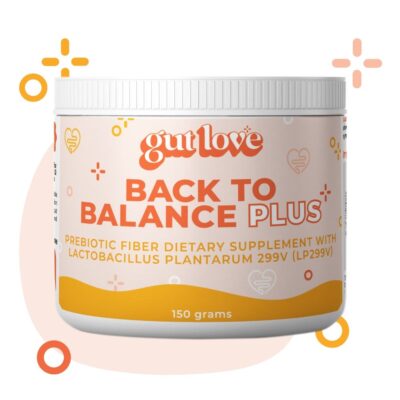Table of Contents
Support for Your Immune System: The Basics
While I think that supporting the immune system looks different for everyone, I think there are few key things that can be helpful in for additional support, especially during flu season. This can also be a helpful thing to do for more vulnerable populations and with higher exposure (like healthcare providers).
In general, a diet that’s rich in vitamin D, antioxidant-rich plant foods, and a diet that supports your gut microbiome with ample prebiotics and probiotics will best support your immune system. However, it’s important to also not forget about crucial immune support tools like movement and sleep too.
1. A Diet Rich in Vitamin D
A number of studies have shown that taking vitamin D reduces the chances of developing acute respiratory infections including influenza. Most studies reviewed indicate that doses range from 2000IU to 4000IU a day. This dose is known to be safe to take long term even in the absence of deficiency.
Vitamin D plays an immune-modulating role in our immune system and protects our gut lining. The gut lining is important as it guards the GALT, the Gut Associated Lymphatic Tissue where 70% of our body’s immune system resides. This is why when it’s low, people often find they get sick more frequently.
Eating a diet rich in vitamin D is also crucial to those who are deficient or have been in the past. If you find that you are getting sick often and have lower energy or low mood it may be a good idea to check your vitamin D or get more in the diet.
- Risk Factors for Low Vitamin D
- Darker skin tone
- Living further from the equator
- Low light exposure
- Working night shifts
- Low Vitamin D in the diet
- Autoimmune Disease
- Gastrointestinal diseases
- General Malabsorption
- Being on medications like Antacids (Pepcid, Omneprozale, Tagamet, Prilosec etc)
- Being on medications like Prednisone
Best Food Sources of Vitamin D
For food sources of vitamin D I like wild caught salmon especially canned with bones included which has even higher amounts. Other sources I like are wild herring and sardines. For those that don’t like fish or my vegan readers, I suggest going the supplemental route on this one for best absorption.
2. A Diet Rich in Antioxidants and Herbs
A diet rich in antioxidants and herbs can be helpful in ways beyond just supporting the immune system. But many high antioxidant foods and herbs also have higher amounts of antiviral compounds.
In fact even some over the counter things medications contain active ingredients derived from herbals. For example, an active ingredient in theraflu is derived from the fermentation of the chinese herb star anise.
While there are many options for supporting the immune system, two of my favorites that are easiest to incorporate, cost effective are green tea and garlic.
Green Tea’s Antiviral Support
Consuming green tea, in particular gargling it has been shown to reduce the risk of contracting influenza and the common cold.
In one study in a long term care facility, those gargling the equivalent of ½ cup of green tea three times daily were 15 times less likely to catch the flu. The tannins in green tea have been shown to have broad antiviral effects and increasing the steeping time can increase tannins.
Garlic’s Antiviral Support
Garlic makes a wonderful antiviral and antimicrobial food as it doesn’t wipe out your gut bacteria since it also has wonderful prebiotic qualities. Garlic has been used for years for all kinds of infections and although you might smell a little, that’s a small price to pay for all of the great benefits.
One study gave 146 healthy volunteers either garlic supplements or a placebo for three months. The garlic group had a 63% lower risk of getting a cold, and their colds were also 70% shorter.
3. A Diet Rich in Prebiotics and Probiotics
Consuming probiotic and prebiotic foods daily can be a great and nourishing way to support both digestive and immune health. Your gut ecosystem is very well connected to many aspects of health and can begin to change in response to diet changes in as little as 3 days!
One thing to keep in mind, sustainable changes need to be ongoing. Similar to plants that need to be watered, gut bacteria also need continual nourishment. Consumption of a prebiotic or probiotic foods at every meal can help support this type of nourishment.
Prebiotics are foods which act as a fuel source for gut bacteria and are also helpful in creating sustainable long term support. Probiotic food sources are foods that contain beneficial bacteria already in them.
[row ]
[col span=”1/2″ ]
Best Prebiotic Foods
- Asparagus
- Green Tea
- Onion
- Garlic
- Artichoke
- Oats
- Banana
- Beans
- Leek
- Dandelion
[/col]
[col span=”1/2″ ]
Best Probiotic Foods
- Kimchi
- Natto
- Miso
- Sauerkraut (I like the Farmhouse Cultures brand)
- Tempeh
- Yogurt (I like the non-dairy brand Lava)
- Keifer
- Kombucha
[/col]
[/row]
4. Best Immune Support Supplements
Consuming probiotics daily has been shown to reduce the risk of respiratory infections. Some probiotic strains have also been shown to reduce the duration of viral and bacterial infections. Two of the best probiotic products with strains that demonstrate the best effects for immune support are listed below.
Immuno-Kids– Chewable probiotic with two strains shown to have a positive effect on Influenza-like symptoms (fever, runny nose, coughing) and shorten the duration of sickness in children [Leyer et.al, 2009]. In a double-blind, placebo controlled study published in the Journal of Pediatrics, taking the two strains found in Immuno-Kids led to:
- Reduced fever incidence by 73%
- Reduced coughing incidence by 62%
- Reduced runny nose incidence by 59%
- Reduced use of antibiotics by 84%
- Reduced days absent from school by 28%
Immune Boost– Immune Boost is a capsule probiotic that’s been shown in some studies to both help in alleviating symptoms of the common cold and shorten the duration of illness [Berggren A et al, 2013][Busch et al, 2013]. In a randomized double-blind and placebo controlled study 12 week supplementation led to:
- Reduction in the incidence of getting sick
- Reduction in days sick by 28%
- Significant reduction in symptoms
5. Exercise for Immune Protection
Movement is often overlooked as a way to reduce anxiety and support the immune system. Walking, lifting weights, hiking, running or biking can be great options for those wanting to support your body and reduce risk of infection. In one study, movement defined as 25-40 minutes of mild to moderate exercise can reduce risk of upper respiratory infection by 50%. But a word of caution, this study also calls out that pushing yourself too hard and not resting (overexercising) can increase risk of infection by 2-6 times.
The Bottom Line
Remember that there are many great and easily accessible options if you are looking to support your immune system. Try to focus on the big picture, make sure you are getting adequate sleep, getting enough vitamin D, moving regularly and getting a few immune supportive foods in the diet where you can.
Resources:
Busch, R., Gruenwald, J., & Dudek, S. (2013, November 1). Randomized, Double Blind and Placebo Controlled Study Using a Combination of Two Probiotic Lactobacilli to Alleviate Symptoms and Frequency of Common Cold. Retrieved March 25, 2020, from https://www.scirp.org/journal/PaperInformation.aspx?PaperID=38903
Hao, Q., Dong, B. R., & Wu, T. (2015, February 3). Probiotics for preventing acute upper respiratory tract infections. Retrieved March 25, 2020, from https://www.ncbi.nlm.nih.gov/pubmed/?term=25927096&fbclid=IwAR1y0MreG-uREdDJx2sg8RGBjk2A81p1hVLwP1RbM-uAIvmWNeOlkIzM6TA
Josling, P. (2001). Preventing the common cold with a garlic supplement: a double-blind, placebo-controlled survey. Retrieved March 25, 2020, from https://www.ncbi.nlm.nih.gov/pubmed/11697022
Martineau, A. R., Jolliffe, D. A., Greenberg, L., Aloia, J. F., Bergman, P., Dubnov-Raz, G., … Hooper, R. L. (2019, January). Vitamin D supplementation to prevent acute respiratory infections: individual participant data meta-analysis. Retrieved March 25, 2020, from https://www.ncbi.nlm.nih.gov/pubmed/?term=30675873&fbclid=IwAR28ymxwdzhfD9FXegWCjp7PJIbztF_FWxx6LwXdmUgCa2FMBx1Kc7hlMgI
Nieman, D. C., & Wentz, L. M. (2018, November 16). The compelling link between physical activity and the body’s defense system. Retrieved March 25, 2020, from https://www.sciencedirect.com/science/article/pii/S2095254618301005
Yamada, H., Takuma, N., Daimon, T., & Hara, Y. (2006, September). Gargling with tea catechin extracts for the prevention of influenza infection in elderly nursing home residents: a prospective clinical study. Retrieved March 25, 2020, from https://www.ncbi.nlm.nih.gov/pubmed/?term=16970537&fbclid=IwAR1s3ATN9Qk_UJ525Zc0Bf0t77eiUQtGZfULzal99Jk2D0dCJXWXEFrqgsA






oo